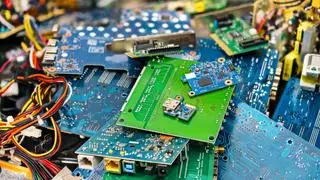When Arunabh Sinha was working with the Treebo Hotel chain some years ago, he found that budget hotels had to constantly change their laundry vendor for different reasons, sometimes thanks to late delivery and often due to hygiene issues. Establishments like Treebo were perpetually in search of an effective, affordable laundry system that took the drudgery out of their hands and ensured no complaints from guests.
In his late twenties then, the young man’s entrepreneurial spirit immediately spotted an opportunity. When he researched the linen and clothes-washing business in India and compared it to other countries, he found a gaping hole between what citizens in metros wanted and the options available.
Those working beyond the 9-to-5 grind had no time for washing their clothes and, like the hotels, were happy to shift the responsibility to someone they could trust. So was the case with senior citizens and those in gated communities.
While studying the viability of the laundry business, Sinha found that by mechanising the process, not only could large volumes be handled, but water and electricity saved. He could also use app-based technology to co-ordinate and speed up the process.
But then, would he be stealing jobs from the traditional dhobi (washerman) who comes around on his bicycle to collect dirty linen or the bai (maid) who washes clothes in homes? Sinha decided he would also include them in his business plan. And that’s what he did when his start-up UClean came up over a year ago in the Delhi-NCR region. He contacted the dhobi community and employed the younger generation to run his hyperlocal “live cleaning” laundromats. In a matter of months, through the franchise route, the business spread its wings to Pune, Chennai and Bangalore.
To give the business a green edge, Sinha ensured that every UClean store was equipped with the latest energy-saving systems. The machines came with in-built technology, which lowers water and electricity consumption on a per-load basis.
“A typical family of four generates about 5 kg of laundry every three to four days, which they process in their domestic washing machine. It consumes about 80 litres of water per cycle. Our laundromats consume about 60 litres per cycle and can handle 10 kg at a go, thus we are able to process the load of two families with water consumption of about 60 litres per cycle as opposed to about 160 litres that the two families would have independently consumed. This helps us reduce water consumption by about 60 per cent,” explains Sinha.
Such saving, he adds, would scale-up in housing societies with 500 to 3000 families. The same holds true for electricity consumption per cycle. A community laundry uses half the electricity. And to further the green component, the first laundromat in Ahmedabad to be run on solar energy is on the cards.
Apps make it easy
For smart cleaning, UClean also uses CleanOps, a set of proprietary software and apps that manage the front and back end of the cleaning process from the time the dirty clothes are collected to when they are delivered back to the customer. Hence, the customer has control on the pick-up time, the cleaning process to be used including the use of fragrance, softeners or stain removers, to its doorstep delivery. “On the operational end an algorithm ensures that any booking made by a customer is automatically routed to the nearest store,” adds Sinha.
He hopes more people will come forward to opt for the do-your-own-laundry concept. “We have started experimenting with coffee hubs where young people can hang out while their laundry is done.” If that happens then we will perhaps see scenes reminiscent of the 80s film, ‘My Beautiful Laundrette’.








Comments
Comments have to be in English, and in full sentences. They cannot be abusive or personal. Please abide by our community guidelines for posting your comments.
We have migrated to a new commenting platform. If you are already a registered user of TheHindu Businessline and logged in, you may continue to engage with our articles. If you do not have an account please register and login to post comments. Users can access their older comments by logging into their accounts on Vuukle.